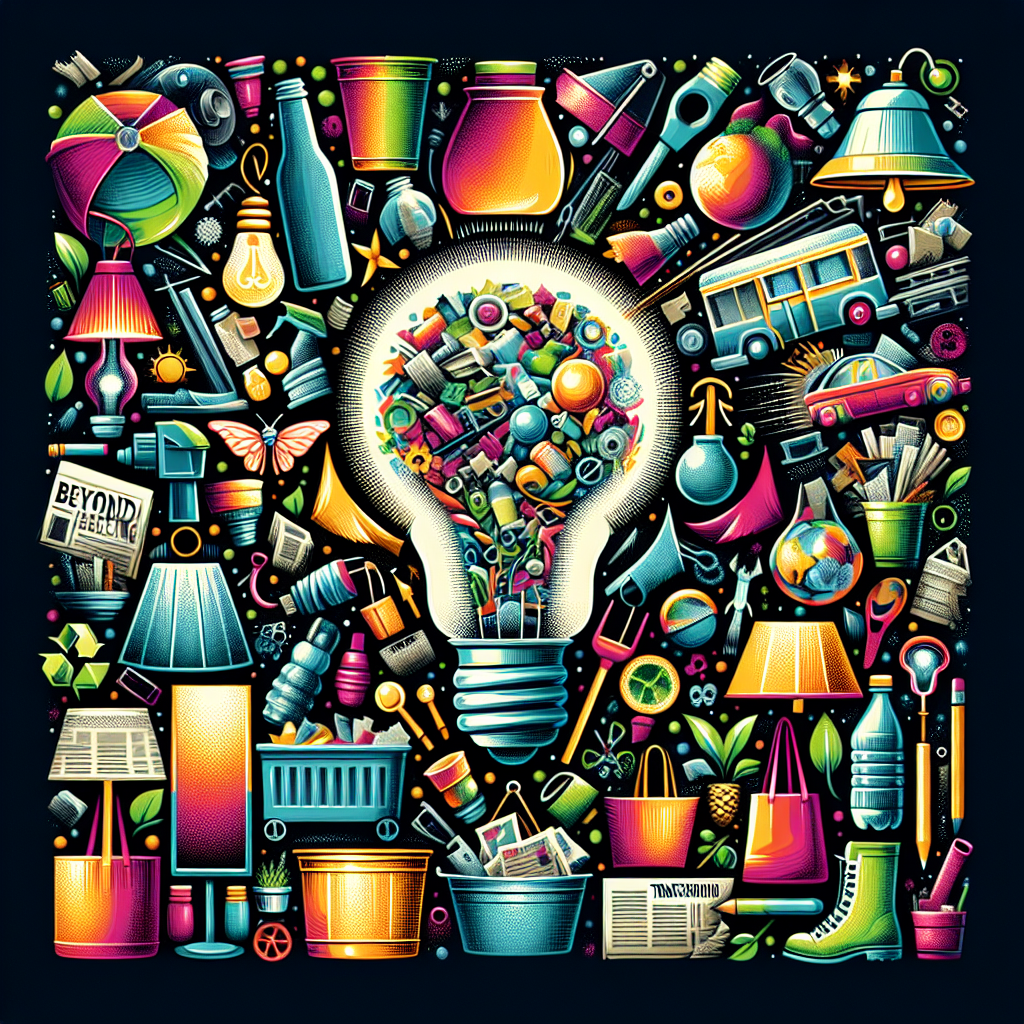<p>As the world grapples with the growing crisis of waste management, the conversation surrounding sustainability is evolving. While recycling has long been championed as a solution, a new movement is emerging: upcycling. This innovative approach not only reduces waste but also fosters creativity and redefines our relationship with discarded materials.</p>
<h2>The Concept of Upcycling</h2>
<p>Upcycling refers to the process of transforming waste materials or unwanted products into new items of superior quality or value. Unlike recycling, which often involves breaking down materials for reuse, upcycling creatively repurposes items, giving them a second life in a new form.</p>
<h2>Environmental Impact</h2>
<p>One of the most significant benefits of upcycling is its potential to reduce the volume of waste that ends up in landfills. According to the Environmental Protection Agency (EPA), millions of tons of waste are generated each year, with a large percentage comprising materials that could be upcycled. By reimagining these goods, we can lessen the strain on our natural resources and decrease pollution associated with manufacturing new products.</p>
<h2>Cultural Shift</h2>
<p>Upcycling is also fostering a cultural shift towards sustainability. With the rise of social media platforms, many individuals and communities showcase their upcycled projects, inspiring others to think creatively about waste. This grassroots movement has led to a growing marketplace for upcycled goods, making sustainable choices more accessible to consumers.</p>
<h2>Unique Impact on Communities</h2>
<p>Beyond individual efforts, upcycling has profound implications for communities. Workshops and local businesses focused on upcycled products create job opportunities and promote community bonding. These initiatives encourage collaboration and empower individuals, making sustainability a shared goal.</p>
<h2>Challenges Ahead</h2>
<p>Despite its many benefits, upcycling still faces challenges. Awareness and understanding of the process are crucial; many consumers are unaware of its potential or assume it requires extensive crafting skills. Additionally, the market for upcycled goods is still developing, requiring support from both consumers and businesses to flourish.</p>
<h2>Conclusion</h2>
<p>As we seek solutions to the global waste crisis, upcycling represents a compelling paradigm shift. It challenges us to view waste not as something to discard, but as a resource laden with potential. By embracing creativity and fostering a culture of upcycling, we can contribute to a more sustainable future, transforming our relationship with waste for generations to come.</p>
<footer>
<p>© 2023 Sustainable Living Initiative</p>
</footer>
</div>

